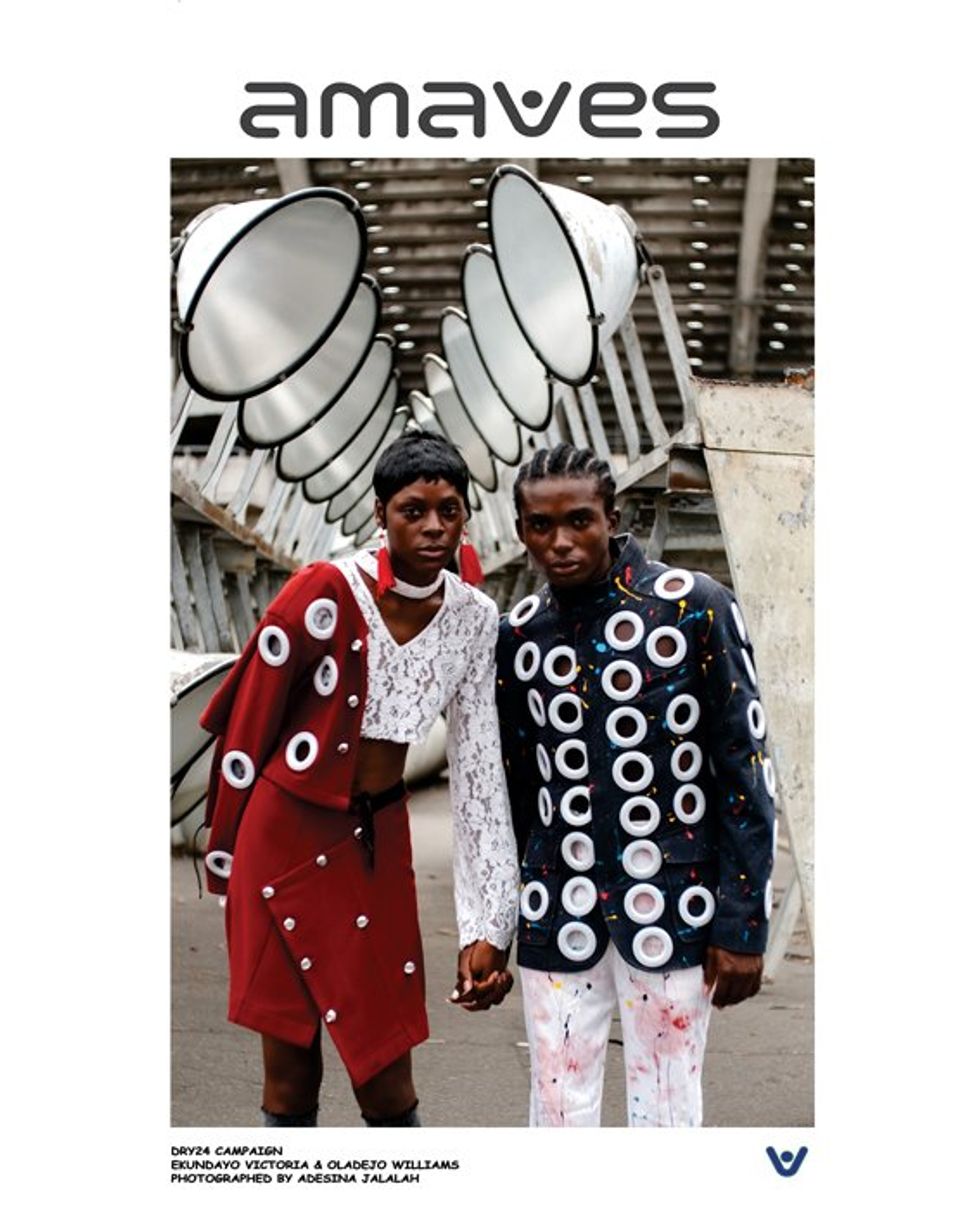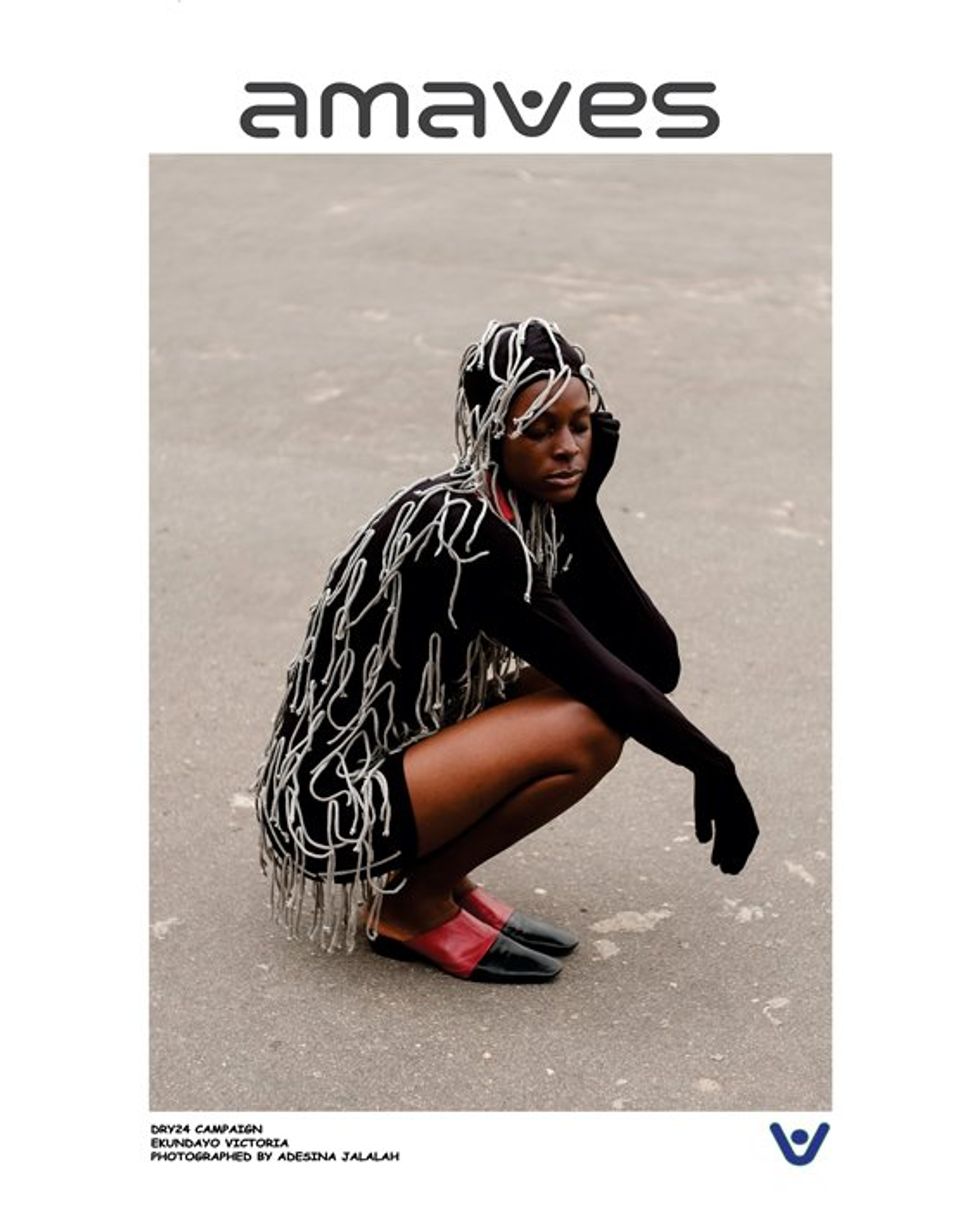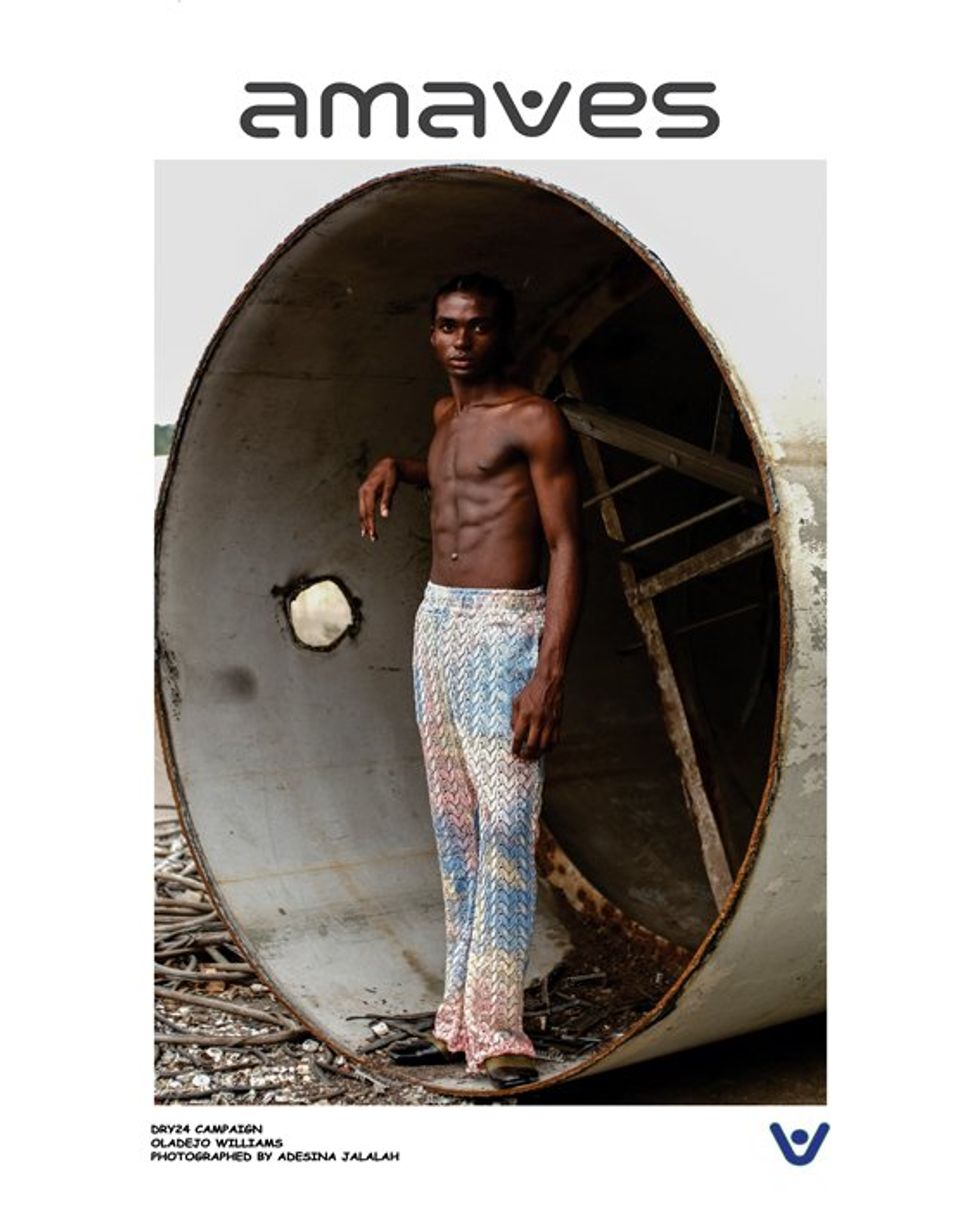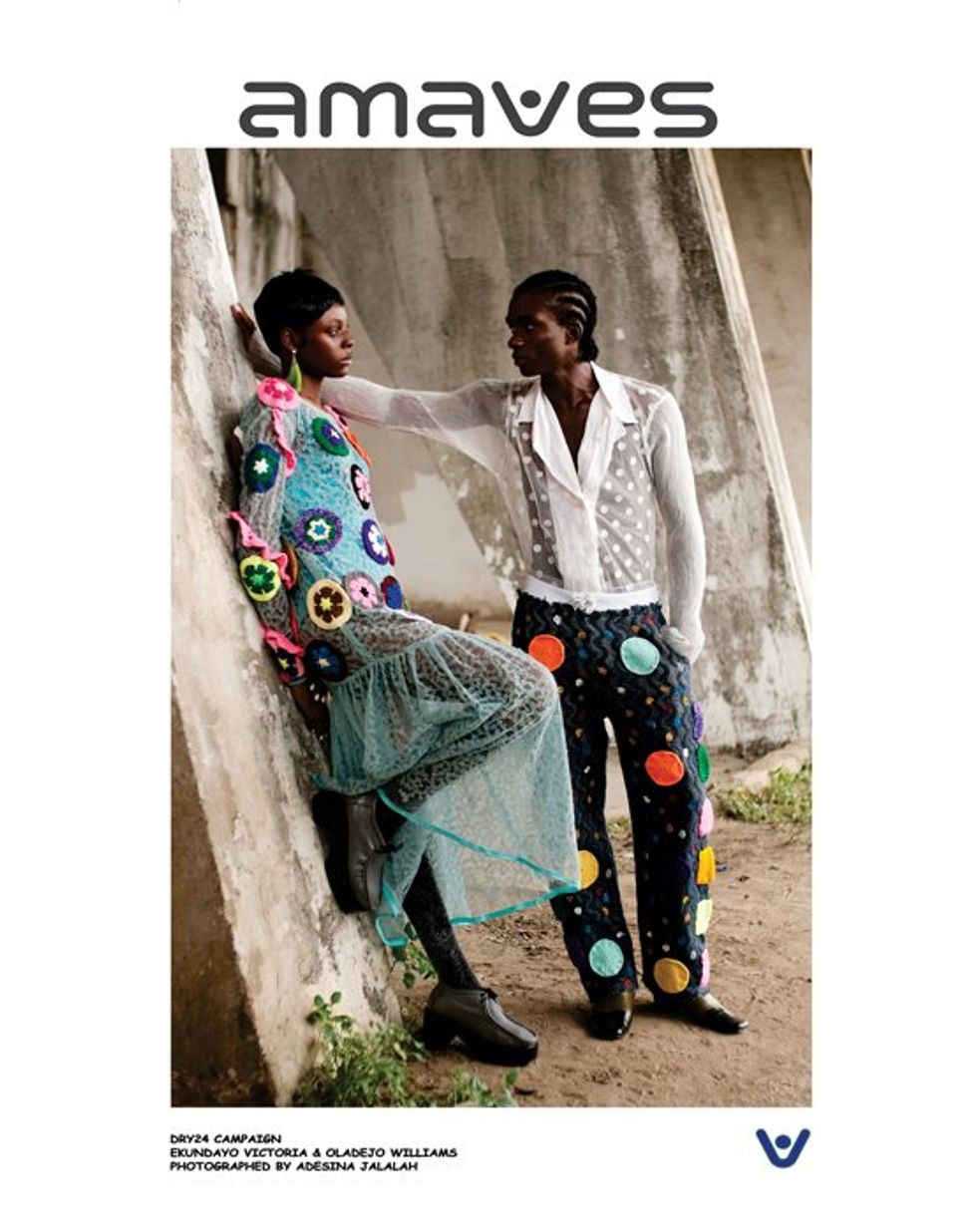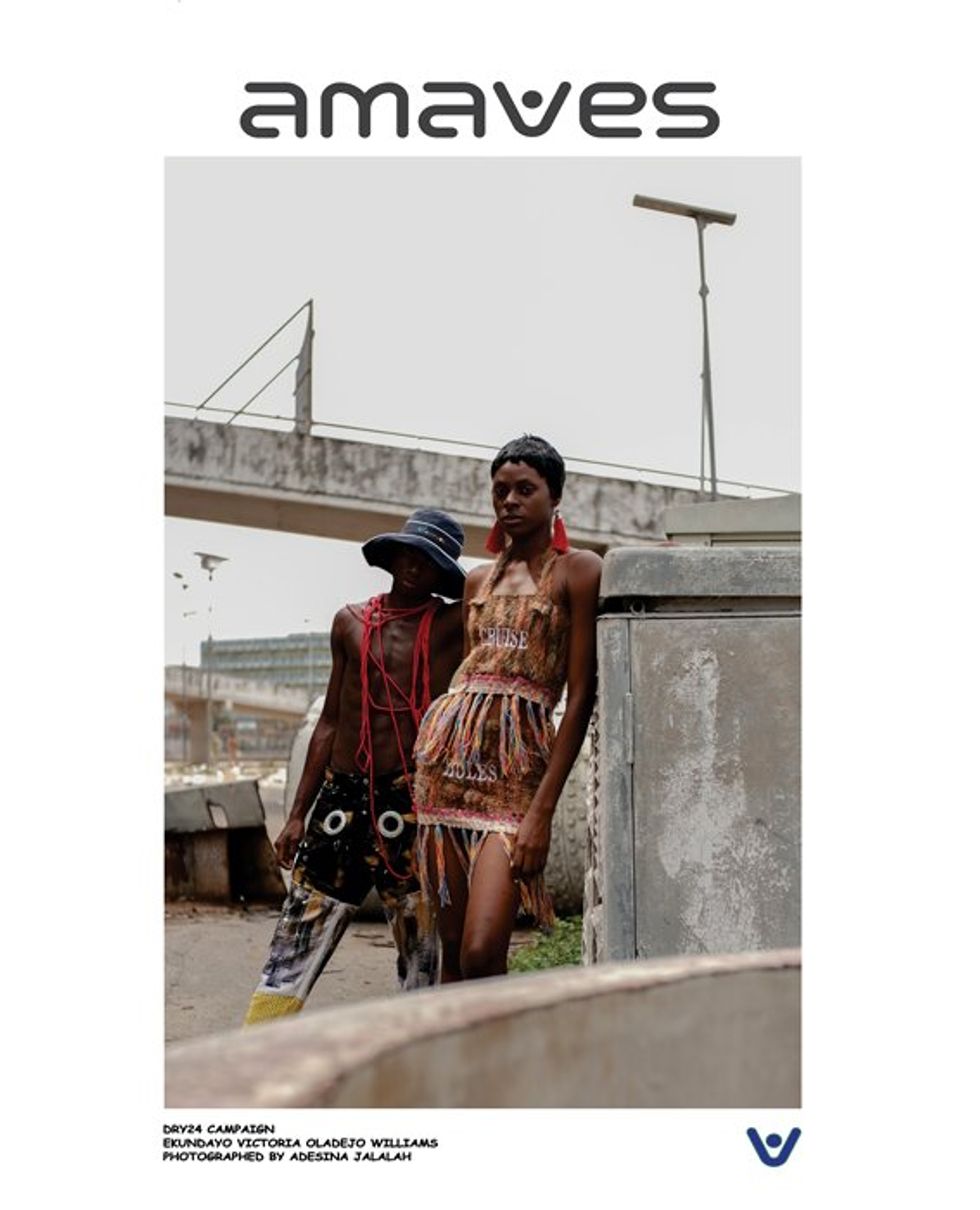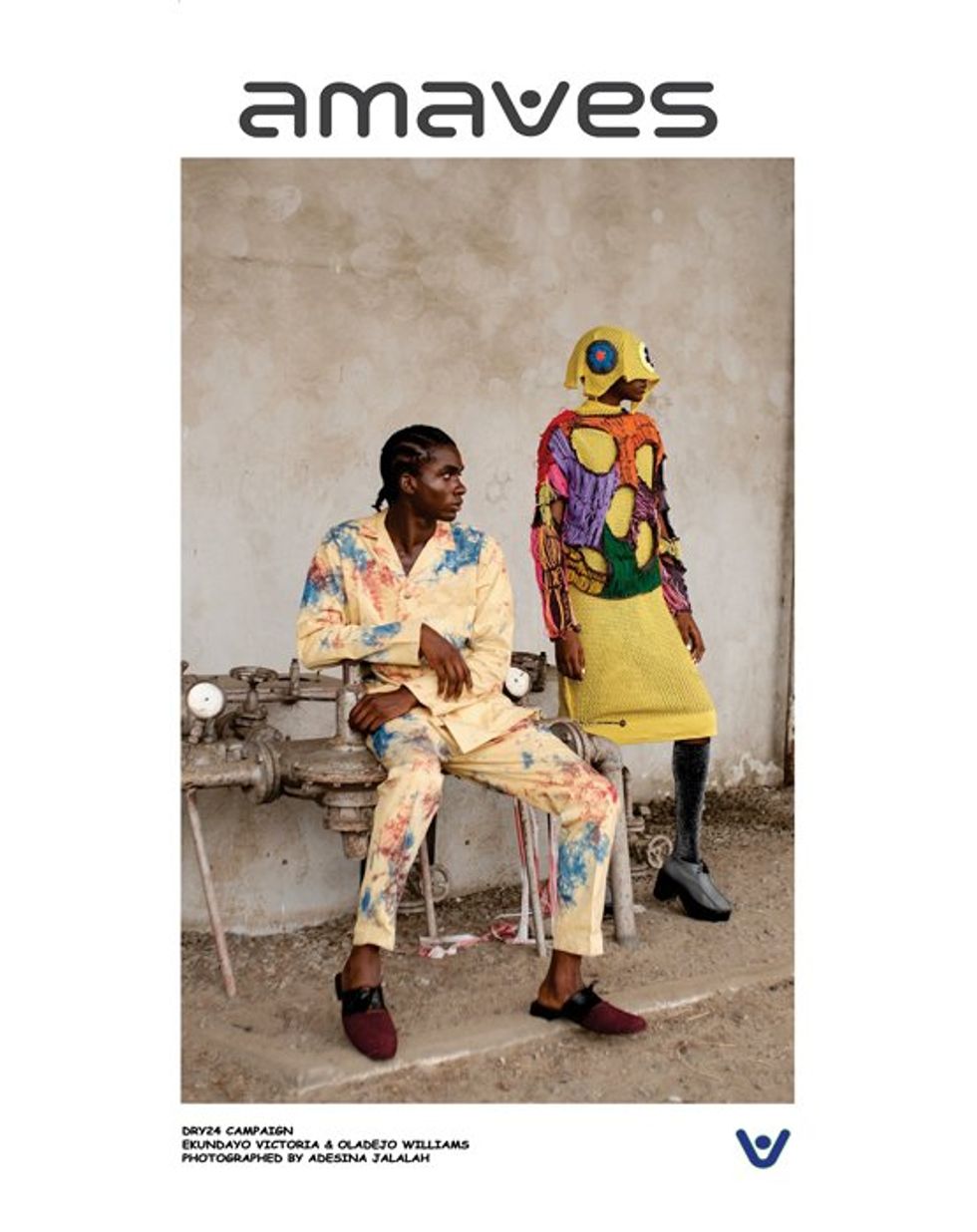Spotlight: Amaves Is The Eco-Conscious Brand To Watch
Creative Director Hassan Abiodun spoke with OkayAfrica to discuss the emerging brand’s strive for eco-consciousness and creating from personal experience.
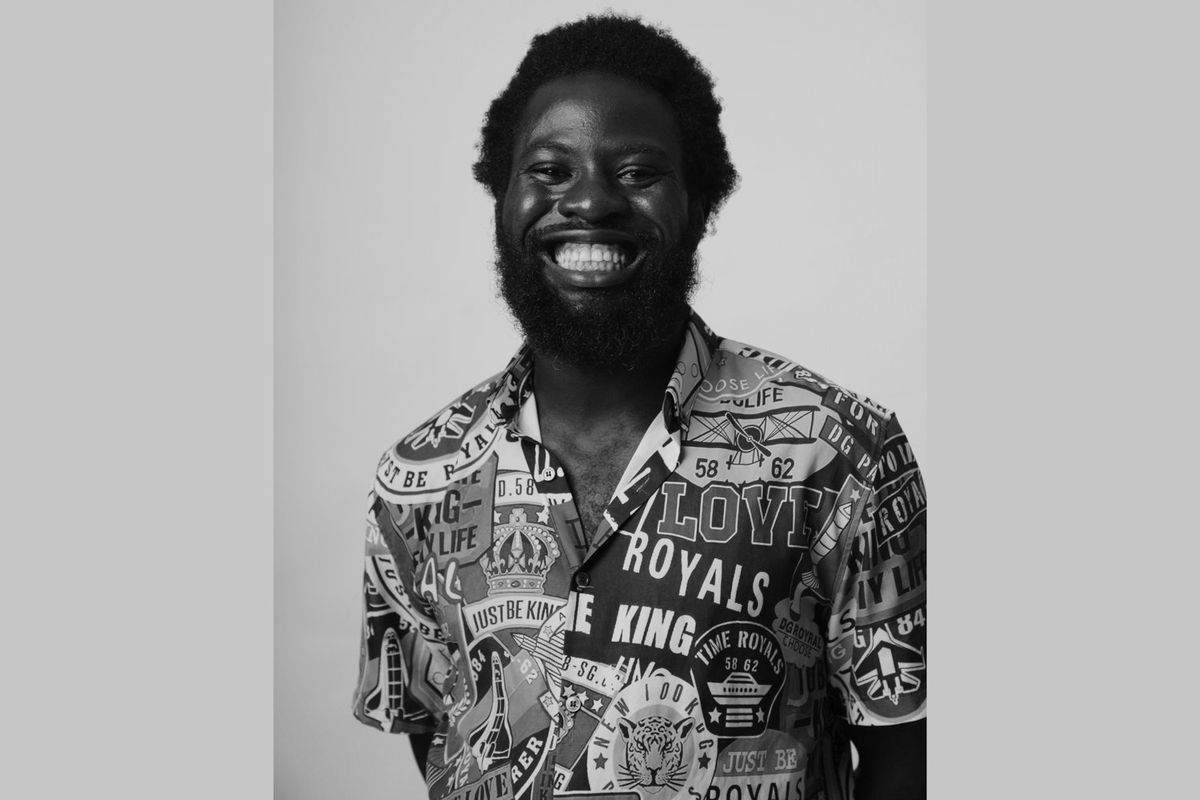
Nigerian fashion brand Amaves.
In our 'Spotlight' series, we highlight the work of photographers, visual artists, multimedia artists, and more who are producing vibrant, original work.
In our latest piece, we spotlight Nigerian fashion designer and photographer Hassan Abiodun. The Lagos-based artist acts as Creative Director of fast rising fashion brand Amaves, an emerging label metamorphosising into a sustainable body of work to pay attention to. The label was founded in 2021, and continues to reimagine the many ways in which fashion has manifested itself in Africa. Their commitment to championing the global shift towards sustainability in fashion is tangible in all aspects of their creative vision. The brand’s use of thrifted clothing, ways of upcycling and recycling previously loved garments, and advocating for the minimum appropriate waste necessary to still create captivating garments has made them a captivating aspirate within the Nigerian fashion scene.
Amaves’s debut Project 101 and first capsule collection Holes: Patchwork Dry ‘24 point towards just that. The collection is personal to Abiodun, and has acted as a means for the creative to explore his individuality, and given him the inspiration to dare to self-reflect on how he exists within the world, as well as how to restore the “holes” from sadness and happiness with the memory of the good times. The designer creates from all five of his senses, with music being Abiodun’s preferred channel through which his creativity flows. According to the designer, the inspiration behind the brand’s campaign came from English singer-songwriter Passenger’s evocative single "Holes" off of their 2012 album All The Little Lights. “Music is my biggest inspiration,” he told OkayAfrica, “and I convert and convey it into a body of work.” This September, the brand released their 12-piece collection constructed from up-cycled thrifted pieces mixed in with luxurious fabrics, all styled into six looks. The team, made up of fellow artists Ajuwon Anuoluwapo and Kehinde Osunbade is developing their flavour of innovation and eco-consciousness, as they make their way to center stage.
We spoke with the creative director about the importance of human connection and understanding, and creating from personal experience.
The interview below has been edited and condensed for length and clarity.
How did your journey into fashion design begin?
In 2017, I applied to a fashion internship, and over time it inspired and encouraged me to enter the world of fashion design. Fortunately, I was connected to a fashion designer who brought me to meetings, got me working in shows, and I started creating pieces. Then, in 2019, I started working editorial jobs with a friend, as creative director, stylist, and director. The next year, I left the brand and started my own thing, and that’s when I designed my first trench coat. That single design has translated to 19 loose designs of my latest collected which is titled, “Holes-Patchwork Dry 24”.
What are the central themes in your work?
My work is about humans. I talk about human emotion, feelings, and surviving. I talk about my environment, too, because I have this grain of saying different things, like different projects about humanity, and all that.
Can you talk about your relationship with colors and accessories?
My colors tend to be primary – basic reds, yellows, and blue – and some secondary or tertiary colors like pink. My accessories are very cheeky because I’m kind of loud. If I want to use accessories on any piece, they have to make a statement. They need to be seen.
What would you do differently if you could start over, and why?
Oh wow. I would’ve connected more when I was with the brand that I used to work with. I really enjoy the backstage life. I would’ve connected more to better understand how the business part in the entertainment industry works.
What do you believe sets African designers apart from the rest of the world?
For Nigerians – we’re culturally inclined. Let’s go back to the fabrics and the designs that have been a part of our culture for centuries – we’re very experimental and the process of creation is great. It’s very interesting how we create art through a process full of African culture and heritage.
Where do you seek inspiration and how does it find you?
My inspirations come from music, street style, European and African fashion brands. But, they find me in exciting ways and in my emotional space. I'm always emotionally attached to pieces and my work, because they feel personal to me. 70% of my work is personal, because I have to invoke emotions, right? My first ever project, Happily Imperfect - 2020, was how my love life looked. Like how love is imbalanced and the selfishness of the individuals making love, trying to make love happen.
- Five Women-Led Companies Taking African Fashion to the World ›
- The African Fashion Brands You Should Know ›
- 14 Ethical & Sustainable African Fashion Brands You Need To Know ›
- Spotlight: Charmaine Chanakira’s Colourful Journey To Self - Okayplayer ›
- Nigerian Designers are Putting a Modern Spin on Traditional Fabrics - Okayplayer ›
